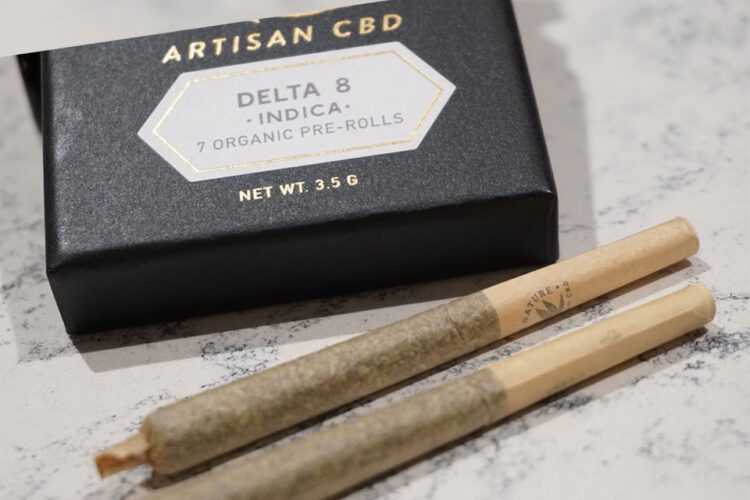The legal and safety status of Delta 8 THC is unclear, but it still draws the interest of entrepreneurs and investors.
As the cannabis market expands across the United States, a specific compound, delta-8 THC, has caught the eye of many for its potential business opportunities.
Often referred to as a gentler and less mind-altering alternative to the more familiar delta-9 THC, delta-8 THC occupies a distinctive position due to its uncertain legal standing.
Delta-8 THC is present in the cannabis plant in minuscule amounts, but the majority of commercially accessible variants are either synthetic or have undergone a chemical process to produce it. It has become popular for its alleged benefits, such as decreased anxiety, enhanced concentration, and mild euphoria. Consequently, Delta 8 has been promoted as a more functional, “clear-headed” substitute for Delta 9 THC.
The legality of Delta 8 THC, however, remains hazy. The 2018 Farm Bill legalized the production and sale of hemp-derived products, including cannabinoids like CBD, as long as they contain less than 0.3% delta-9 THC. Since delta-8 THC can be derived from hemp through chemical processing, many producers and sellers argue that it is technically legal under the Farm Bill.
The Drug Enforcement Administration asserts that all synthetic tetrahydrocannabinols, including delta-8 THC, are classified as Schedule I controlled substances. This position has not helped clarify the situation for businesses and consumers, and some states have implemented their own regulations to address the ambiguity.
Financial Interest
Despite the legal ambiguity, companies have been eager to capitalize on delta-8’s increasing popularity, sometimes at the cost of legal cannabis dispensaries. Numerous businesses have started manufacturing delta-8 products, such as vape cartridges, gummies, and tinctures, which are available online and in brick-and-mortar stores nationwide.
Analysts expect the delta-8 market to experience rapid growth, potentially becoming a multibillion-dollar industry in the near future.
Investors have recognized the possible opportunities in the delta-8 THC sector. Some startups focusing on the compound have secured significant funding, raising millions of dollars in seed rounds and Series A funding. These investments have enabled these businesses to expand their product offerings, boost production, and widen their distribution networks.
Safety Concerns
Although business opportunities exist, increasing safety concerns regarding these products are also discouraging investors and consumers. Reports of negative side effects and even fatalities can be found through a simple online search.
For example, data gathered from Virginia’s three poison control districts, as reported by WVEC, recorded over 1,200 calls in 2022 involving “THC”, the primary psychoactive component in marijuana. Of those THC calls, 180 were coded as either delta-8 or “synthetic” calls.
One district noted that 40 of its 85 cases involved patients 19 years old or younger, highlighting the products’ appeal to young adults under 21.
The uncertain legal status of delta-8 THC poses risks for both businesses and investors. Some states have already prohibited the compound for those under 21, while others have banned it completely.
Further regulatory actions could affect market growth. Moreover, increased attention from federal authorities could result in enforcement actions against companies operating in this space.
Nevertheless, the delta-8 market persists in growing, attracting entrepreneurs and investors seeking to profit from its potential.









